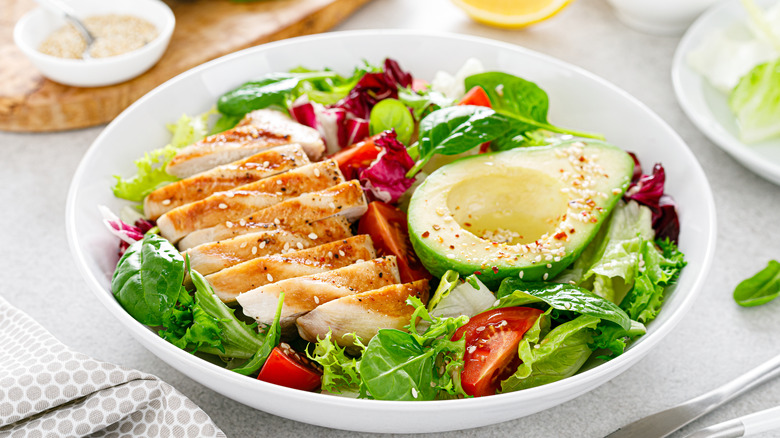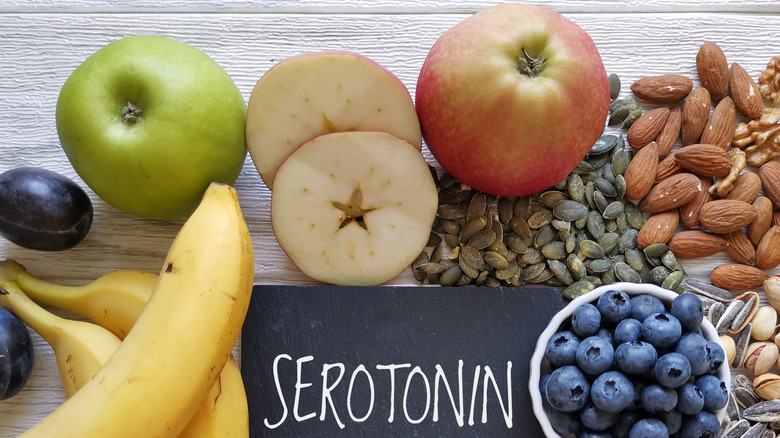Don't Eat Avocado Before Getting This Medical Test
Avocados are almost a trend at this point. They've shown up on clothing, notebooks, and pencils. You can buy plush pillow versions, squeaky avocados for your dog, and even avocado jewelry. The popularity of avocado toast has become the source of an intergenerational rift (via The Washington Post). And it's all pretty understandable. Avocados are delicious on salads and burgers, in sushi, and as the base for guacamole. They have a ton of health benefits and can blend into soups or smoothies for an almost unnoticeable boost.
But for all the good they do, there is at least one time when avocados will almost certainly do more harm than good. Or, more specifically, the serotonin they offer will do more harm than good. And that might surprise some people. After all, serotonin is a hormone that makes us happier, according to the Hormone Health Network. It helps stabilize moods and promote a sense of well-being.
Normally a small serotonin boost in your diet isn't a bad thing. But that all changes when your doctor orders a 5-HIAA 24-hour urine test. As soon as they tell you to take the test, you'll want to put down the avocados and every other serotonin-rich food. Otherwise you might end up with a false positive you really don't want.
The not-so-happy chemical
MedlinePlus explains that the 5-HIAA urine test requires a patient to collect all of their urine for 24 hours. The patient then sends it all to the lab where their 5-hydroxyindoleacetic acid levels are checked. This compound occurs when the body breaks down serotonin, which is why eating serotonin-rich foods before the test can be a problem. In fact Britain's National Health Service says that patients should avoid all serotonin-rich foods for three days before taking the test, just to be safe. These foods include avocados, tomatoes, eggplants, broccoli, walnuts, bananas, plantains, and hickory nuts. Kiwis, pineapples, plums, prunes, and all of their juices are also on the list.
Eating any of these foods in the three days prior to or on the day of the test could lead to an abnormal result. This can lead to a false diagnosis of endocrine or carcinoid tumors, also known as tumors of the digestive tract (via MedlinePlus). Abnormal 5-HIAA levels may also be a sign of a rare genetic disorder called systemic mastocytosis, a condition that causes too many mast cells — a form of white blood cell — to accumulate in the body, according to the Mayo Clinic. In either case, it's not the diagnosis anyone wants to accidentally get on account of an avocado.


